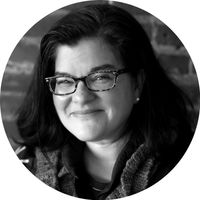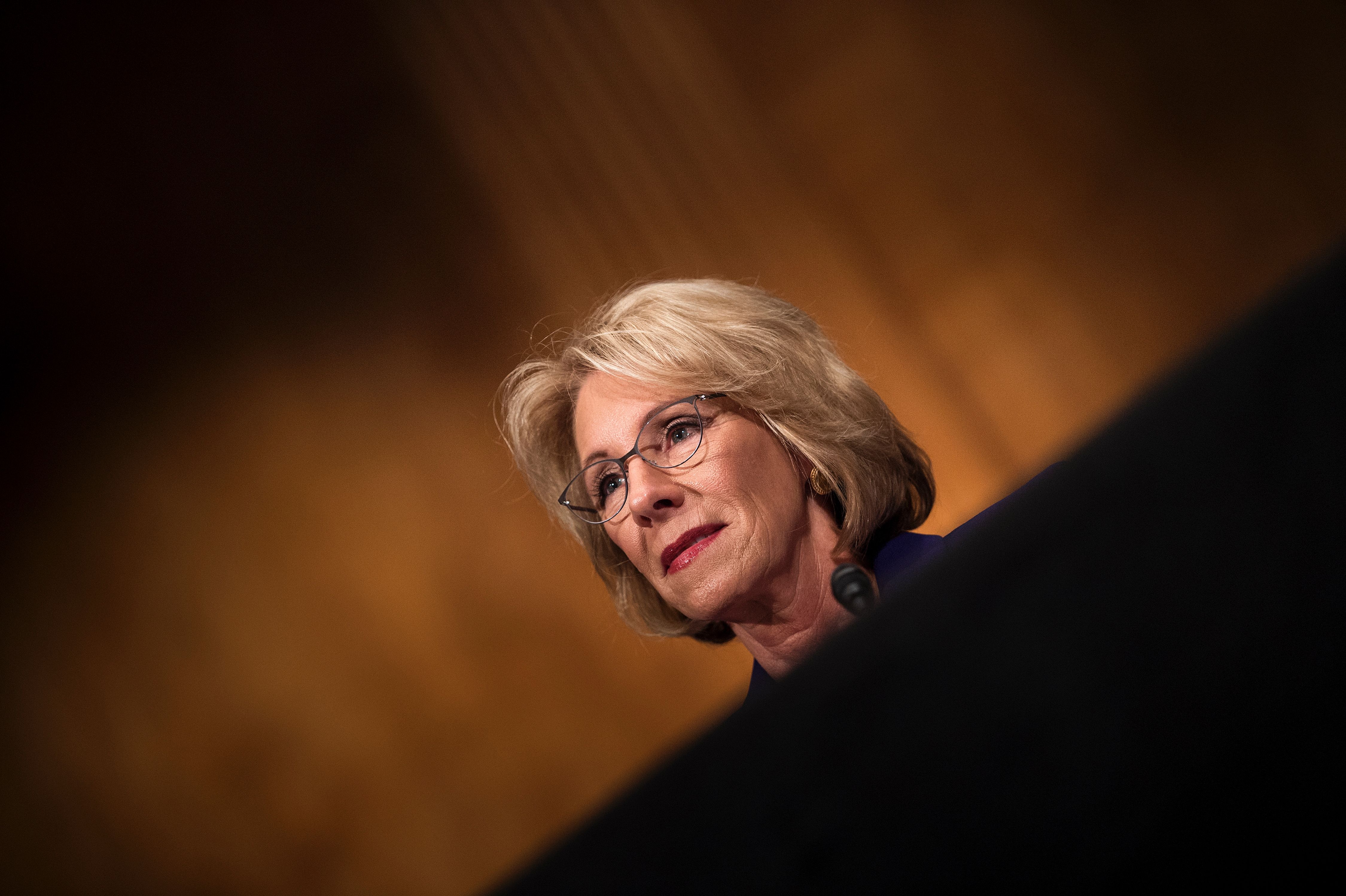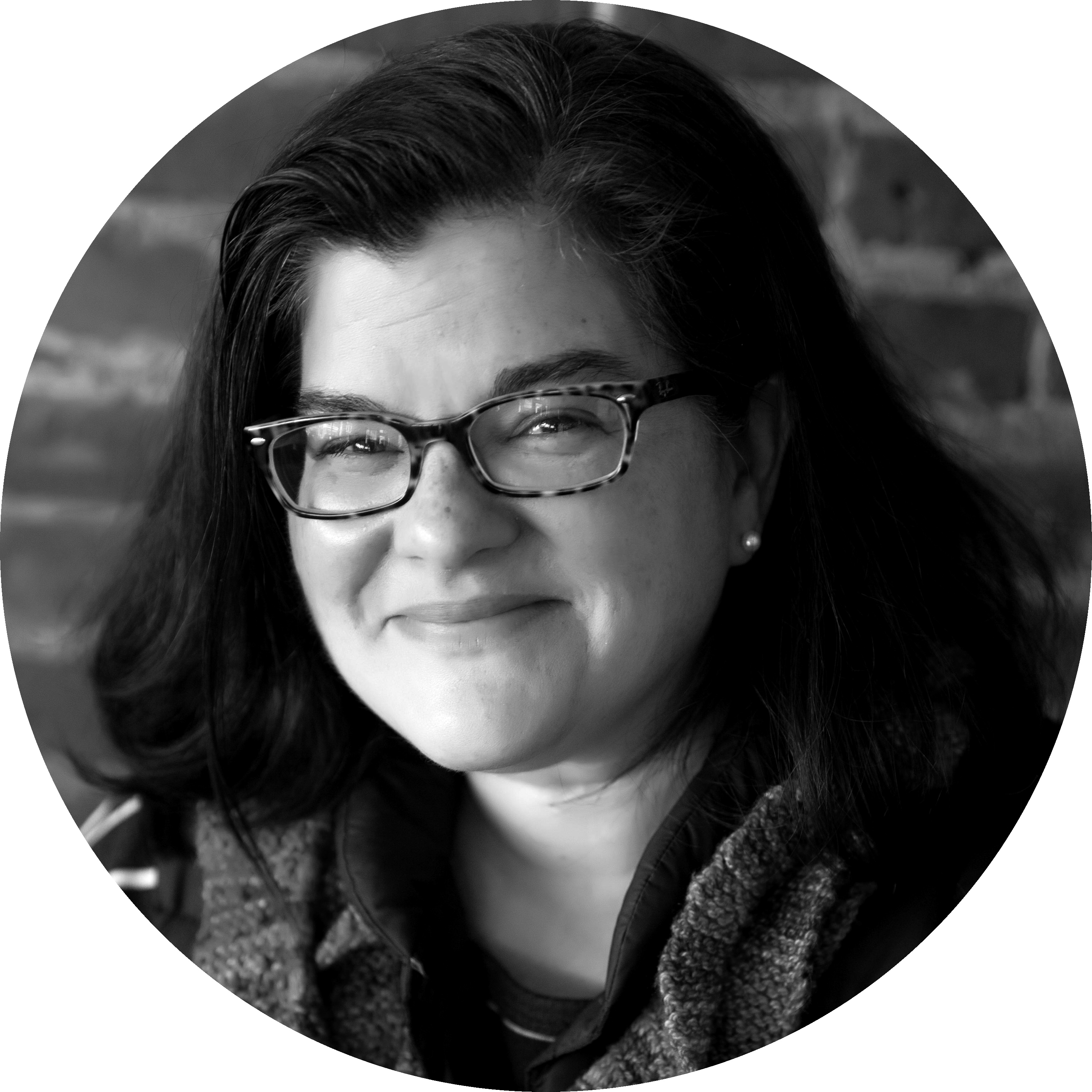Why Betsy DeVos could be devastating for children with special needs
Some of our most vulnerable children could suffer under school choice policies


A free daily email with the biggest news stories of the day – and the best features from TheWeek.com
You are now subscribed
Your newsletter sign-up was successful
The confirmation of Betsy DeVos as education secretary was controversial for a lot of reasons. Opponents say she lacks experience in public education; supporters say she will bring much-needed change to the school system. But one thing critics have seized on is what DeVos' support for school choice will mean for poor students, particularly those who require special education. These are students with challenges like Cerebral Palsy, Down syndrome, and Slow Processing Disorder, but also those with dyslexia and autism. School choice could hurt a lot of students, but it is these kids who could be the hardest hit.
Public schools are free because they're paid for by taxpayers. They accept students based on geographic location, regardless of ability, religion, race, or socioeconomic level. When people talk about "school choice," what they're referring to is the practice of giving government funds to parents, who can then use that money to send their kids to a school other than the one that corresponds to their neighborhood or geographic location. Parents have a few options when deciding where to send their kids: private schools, which are privately funded and where a child must apply for admission; and charter schools, which are publicly funded, privately managed, and semi-autonomous where a child must apply for admission.
Proponents of school choice claim that all students, both those who take advantage of choice and those who remain in their neighborhood schools, will benefit as schools improve in response to competitive pressures. To appear more attractive in this freer education market, the theory goes, all schools will improve their standards. But the glitch with this thinking is that not all children actually can choose to go to a better school in the first place. For many poor parents — particularly those who work full-time, or have multiple jobs, or are single — transporting their kids to their ideal school is nearly impossible. Other parents simply don't know how to advocate for their children and take advantage of a choice program. So, instead of a rising tide lifting all boats, what actually happens is that the more advantaged and informed students opt out to better schools, leaving the more disadvantaged students isolated in the worst schools. And because choice schools use public funding, that leaves less and less money behind for the worst-performing public schools, making it harder and harder for them to actually improve.
The Week
Escape your echo chamber. Get the facts behind the news, plus analysis from multiple perspectives.

Sign up for The Week's Free Newsletters
From our morning news briefing to a weekly Good News Newsletter, get the best of The Week delivered directly to your inbox.
From our morning news briefing to a weekly Good News Newsletter, get the best of The Week delivered directly to your inbox.
So how does this apply to students with special education needs?
It's not that charter schools or other choice schools can legally deny access to kids with special needs. The Individuals with Disabilities Act (IDEA) ensures "that all children with disabilities are entitled to a free appropriate public education to meet their unique needs and prepare them for further education, employment, and independent living." But, as the Center for Parent Information Resources has written on its website, "if more students apply to the school than the charter can serve, the charter may use a random selection system to determine student enrollment." In other words, charter schools are jam-packed, and competition for admission is fierce. And while selection is supposed to be "random," it doesn't always go that way. Here's how NC Policy Watch put it:
...charter critics say they believe some schools may be "cherrypicking" pupils; in other words, intentionally excluding low-income and minority students who, according to data, are more likely to trail their peers academically. [NC Policy Watch]
If charter schools discriminate against low-income and minority students, what's to stop them from keeping special needs children out, as well? Special education can be expensive and time consuming, and some schools, selfishly, don't want the added expense.
Even if these kids are accepted, charter and private schools are not required to offer special education services beyond those that can be provided with "minor adjustments" to existing educational programs. But to do special education right, schools need more than just "minor adjustments." Each child needs a personalized plan involving many modifications to help them succeed. For example, some kids need to listen to audio recordings instead of reading text. There are timing, scheduling, organizational, assignment, and curriculum modifications that need to be made.
A free daily email with the biggest news stories of the day – and the best features from TheWeek.com
This may seem like a great deal of customization, but honestly, it's this kind of customization that public schools are really good at — if they have enough resources. Amy Silverman, author of the book My Heart Can't Even Believe It, lives with her daughter Sophie in Arizona, where school choice is already available. In an open letter to U.S. senators, she writes: "Every kid is a challenge, but Sophie more so. She has Down syndrome. At 13, she's fully mainstreamed in the eighth grade. Despite what you've read about the charms of school choice, it's our local public school system — not charter schools, not private schools — that has welcomed her with open arms and made the accommodations necessary to keep her with her typical peers, something that's made all the difference for my kid."
If private and charter programs slam the door on children with special needs, these kids wind up back in the public schools from which they came, only now, those schools have fewer dollars to meet their needs because of a choice system that's siphoning away public funding. It's a vicious cycle.
In the quest to have an educated American citizenry, no person should get left behind. Parents want to know and believe and hope that their child, no matter their differences, will be educated like everyone else's children. But with Betsy DeVos in charge of America's education system, parents have every right to doubt this will actually happen.
What school choice really means is that kids have the possibility of a choice, but are forced to find ways to access that choice. This is close to impossible for a child living in poverty, and even more difficult for kids who require special education needs. This is a disgrace.
Kimberley Moran is a freelance writer and gifted and talented teacher living in Maine. Her writing has also appeared at GOOD, MarieClaire.com, Noodle.com, MiddleWeb, and other outlets.
-
 5 cinematic cartoons about Bezos betting big on 'Melania'
5 cinematic cartoons about Bezos betting big on 'Melania'Cartoons Artists take on a girlboss, a fetching newspaper, and more
-
 The fall of the generals: China’s military purge
The fall of the generals: China’s military purgeIn the Spotlight Xi Jinping’s extraordinary removal of senior general proves that no-one is safe from anti-corruption drive that has investigated millions
-
 Why the Gorton and Denton by-election is a ‘Frankenstein’s monster’
Why the Gorton and Denton by-election is a ‘Frankenstein’s monster’Talking Point Reform and the Greens have the Labour seat in their sights, but the constituency’s complex demographics make messaging tricky
-
 The billionaires’ wealth tax: a catastrophe for California?
The billionaires’ wealth tax: a catastrophe for California?Talking Point Peter Thiel and Larry Page preparing to change state residency
-
 Bari Weiss’ ‘60 Minutes’ scandal is about more than one report
Bari Weiss’ ‘60 Minutes’ scandal is about more than one reportIN THE SPOTLIGHT By blocking an approved segment on a controversial prison holding US deportees in El Salvador, the editor-in-chief of CBS News has become the main story
-
 Has Zohran Mamdani shown the Democrats how to win again?
Has Zohran Mamdani shown the Democrats how to win again?Today’s Big Question New York City mayoral election touted as victory for left-wing populists but moderate centrist wins elsewhere present more complex path for Democratic Party
-
 Millions turn out for anti-Trump ‘No Kings’ rallies
Millions turn out for anti-Trump ‘No Kings’ ralliesSpeed Read An estimated 7 million people participated, 2 million more than at the first ‘No Kings’ protest in June
-
 Ghislaine Maxwell: angling for a Trump pardon
Ghislaine Maxwell: angling for a Trump pardonTalking Point Convicted sex trafficker's testimony could shed new light on president's links to Jeffrey Epstein
-
 The last words and final moments of 40 presidents
The last words and final moments of 40 presidentsThe Explainer Some are eloquent quotes worthy of the holders of the highest office in the nation, and others... aren't
-
 The JFK files: the truth at last?
The JFK files: the truth at last?In The Spotlight More than 64,000 previously classified documents relating the 1963 assassination of John F. Kennedy have been released by the Trump administration
-
 'Seriously, not literally': how should the world take Donald Trump?
'Seriously, not literally': how should the world take Donald Trump?Today's big question White House rhetoric and reality look likely to become increasingly blurred
